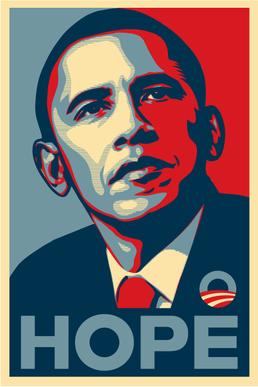We founded Circle of Hope in a ripe moment of history and the outcome has been beautiful. A few weeks into the process, we sat in a small circle discussing what our name would be. We ended up with several versions of a name with “hope” in it. But some people did not like any of those versions. A few people (and in a circle of ten, a few is relevant!) thought it was just too much to put “hope” right out there in the church’s name.

Maybe they were right to be cautious. Regardless, they were certainly representative of many others, since many people think hope is far-fetched, even dangerous — mainly because they think it is something tied to outcome. If you are a circle of hope you invite expectations that might not be met. So many people are laboring under all the “outcomes” required of them, and under all the “outcomes” that were promised and did not happen.
For many people, “hope” is an optimistic feeling — or at least a willingness to go on, because one senses things are going to get better. But is that sense about worn out these days? What if you put “hope” right out there on your poster, like President Obama did, and then everything does not get better like you promised? What if you imply that Jesus is going to get you a job, provide a mate and cure your cancer and it does not happen? Won’t the name of your church just point out the fact that it did not happen?
We had people on our little team whose hopes had been dashed. What’s more, some of them had grown up in the church, where they even memorized Bible verses like in Psalm 116: “I love the Lord, because he has heard the voice of my supplication…I was brought very low and he helped me.” But it did not always happen just like the verse promised. After a while, it is hard to figure out what to do with dashed hopes.
I have memorized some Bible verses myself and I am an optimistic guy — and God has repeatedly helped me when I was “brought low.” Even so, I have never thought it was wise to make promises God was not going to keep, at least not wise to act as if God were the Amazon of human need.
Another way of experiencing hope
I am reading a little book that beautifully points out there is another kind of hope represented in the Bible which is a complete reversal of our usual way of looking at hope in terms of outcomes. We can see it in Habakkuk 3:17-19 where the prophet dances on the heights even though the land is devastated, or when Jesus offers inside water for outwardly thirsty people in John 4:13-14, or in the “total immersion course” in the school of hope that the book of Job is where he ends up singing Job 19:25-26: “I know my redeemer lives.”
Cynthia Bourgeault calls this hope “mystical hope.” And that is the title of her book, too. Mystical hope has three characteristics in contrast to our usual notions of hope. These usual notions, based on outcomes, are not bad, they just are not complete or entirely useful. She says, in light of the three biblical examples mentioned:
Mystical hope is not tied to a good outcome, to the future. It lives a life of its own, seemingly without reference to external circumstances and conditions.
This kind of hope has something to do with presence – not a future good outcome, but the immediate experience of being met, held in communion, by someone intimately at hand.
This hope bears fruit within us at the psychological level in the sensations of strength, joy , and satisfaction: and “unbearable lightness of being.” But mysteriously, rather than deriving these gifts from outward expectations being met, it produces them from within.
Our mystical hope
Mystical hope makes a Circle of Hope and allows us to act for good outcomes. This week the pastors passed around a couple of pieces that tested our hope. One was from the Census Bureau.

The map above shows the increase in the number of young adults (18-34) in the United States living at home with their parents in 2015 compared to 2005. The changes in society in the last ten, certainly the last 40 years are staggering. More than 1 in 3 young people lived in their parents’ home in 2015. That is a huge increase in one decade. What’s more, of those people, 1 in 4 are idle, that is they neither go to school nor work. Many people see this as a poor outcome. Are all these people hopeless?
The other piece was about alone and lonely men. A journalist who researchers psychology was pondering the Las Vegas shooting. An apparently completely alone man was the shooter. As a “lone wolf” he is not that unusual among men. The author says:
As a man, you might be thinking, “Not me, I’ve got drinking buddies. I play poker with the guys. I’ve got friends.”
But do you have confidants? Do you have male friends who you can actually be vulnerable with? Do you have friends whom you can confide in, be 100% yourself around, that you can hug without saying “No homo,” without feeling tense or uncomfortable while you’re doing it?
For many men, the answer is “no.” So, we spend our time posturing instead.
From an early age, we have an unhealthy ideal of masculinity that we try to live up to. Part of that ideal tells us that Real men do everything on their own. Real men don’t cry. Real men express anger through violence.
The byproduct is isolation. Most men spend the majority of their adult lives without deeper friendships, or any real sense of community. Not to mention a complete inability to release anger or sadness in a healthy way.
Many woman might feel exactly the same way, of course. And the evil ways of late capitalism has made a perfect environment to create unhealthy, isolated people.
I want to say more about Cynthia Bourgeault’s book in the future. But for now, let me end with a quote that speaks back to twentysomethings who feel that their future is bleak and parents who feel their children are hopeless cases, and to men and women who feel isolated and friendless, stuck in some pattern that feels hopeless. There is something deeper than your situation.
Hope is not intended to be an extraordinary infusion, but an abiding state of being. We lose sight of the invitation – and in fact , our responsibility, as stewards of creation – to develop a conscious and permanent connection to the wellspring. We miss the call to become a vessel, to become a chalice into which this divine energy can pour; a lamp through which is can shine.
But what if we are intended to become this vessel, this body of hope? What if, in fact, this effervescent, “lightness-of-being” energy is the fuel that drives our human life toward its divine fulfillment? What if our insistence on treating it as a rare and exceptional phenomenon is a way of ducking the invitation that was permanently extended at the Samaritan well that blazing midday?
The journey to the wellspring, the to secret of Jesus, the Master of Galilee, is the great inner journey to which we Christians are called.
I am glad we put hope right out there in the name of our expression of the Church. It almost dares people not to meet Jesus. On the one hand, God has produced outcomes that are far greater than we imagined as we sat in a little circle of ten in my living room. We hoped good things would happen and even more than we hoped happened. So that’s great. But what about all that did not happen? What sustained us when we failed, broke up, died, lost faith, were betrayed and confused? It was that mystical hope, that turning toward the living water that energizes us to get up and follow Jesus.
Other posts on Mystical Hope:
Swimming in the Mercy: The experience of hope
Anxious and tired: Prayer that turns us toward hope
There is hope: But you’ll need to die to enjoy it
Hope: The quality of aliveness right under our noses
Subscribe to Development! Hit the “follow” button after you type in your email. Thanks for reading!
Thanks, Rod. This rings true to me – I think because it is outside of us. Cause and effect – I pray and then it is answered – is a linear way of thinking and seems like a very limited way to understand the hope that God gives us – especially when God exists outside of our understandings of time and space.